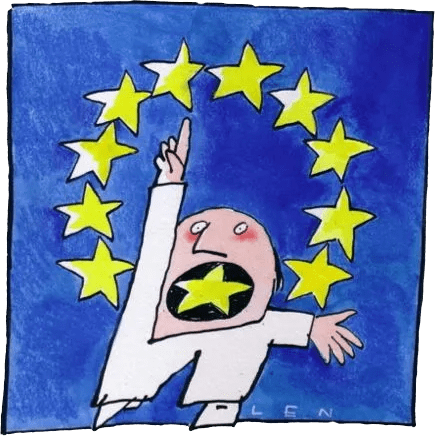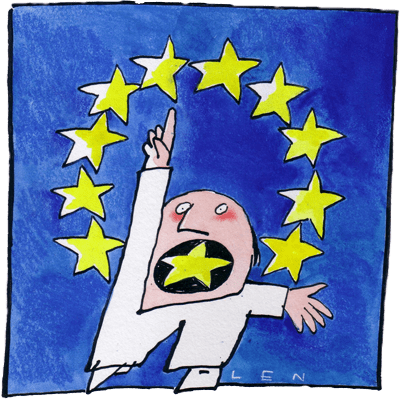
As the Commissioners-designate are about to be screened by the European Parliament, we share with you five key demands for a European Citizens’ Initiative that works.
1. Do what you’ve promised! #EndTheCageAge
In 2021, the European Commission made its first-ever and only promise of drafting legislation in response to the main demand of a successful citizens’ initiative, as it explicitly committed “to propose to phase out and finally prohibit the use of cages for all the animal species and categories referred to in the initiative.” The relevant draft legislation was announced for late 2023, but the Commission failed to deliver, citing the need for further assessment, amidst intense industry lobbying, as revealed by several media sources. The ECI Campaign is counting on the new Commission to recommit to proposing the promised legislation without any further delay.
2. Civil society representation in Expert Group
The previously mentioned developments related to the #EndTheCageAge further underlines the need for strong civil society involvement in the development and oversight of this instrument of political participation. The ECI Campaign therefore calls on the European Commission to invite civil society actors to the ECI Expert Group, as also called for by the European Parliament.
3. Combine ECI with Citizens’ Panels
In the Political Guidelines for the next European Commission, Ursula von der Leyen commits to continue organising European Citizens’ Panels on “policy areas and proposals where recommendations [..] would have the greatest value.” In order to avoid top-down topic selection and citizen washing, we suggest that European Citizens’ Panels are organised on the topics and demands of successful ECIs, especially when EU institutions are in doubt about following up on the ECI’s objectives. This will help the EU institutions to identify the degree of public support for an ECI, if people are given the chance to properly reflect and deliberate on its demands.
4. Bring back OpenECI
As of 2024, ECI organisers are forced to use the EU’s central online system to collect ECI signatures, taking away organisers’ freedom to set up and use an ‘individual’ online collection system – notably the OpenECI software co-developed by The ECI Campaign. This was a big step back for the ECI, limiting the freedom and flexibility of ECI organisers and making the instrument significantly less interesting for digital campaigning organisations and movements. We call on the EU Commission to revise the ECI regulation and bring back the option for ECI organisers to set up and use individual online collection systems.
5. Stronger European Parliament and Council involvement
Participatory democracy can only work well if combined with representative democracy. Due to its technocratic nature, the European Commission is not the natural partner to judge the merits of a successful ECI. By contrast, the European Parliament and the Council – as (in)directly elected institutions and EU co-legislators – are much better placed to decide on the follow-up given to successful ECIs. We call on EU decision-makers to redirect the ECI to the European Parliament and the Council as part of a much-needed EU constitutional reform process. In the meantime, we call on both these institutions to step up their own efforts in monitoring the ECI and the follow-up given to successful initiatives, notably by considering to use their indirect rights of initiative to propose legal acts when the Commission refuses to act on a successful ECI.
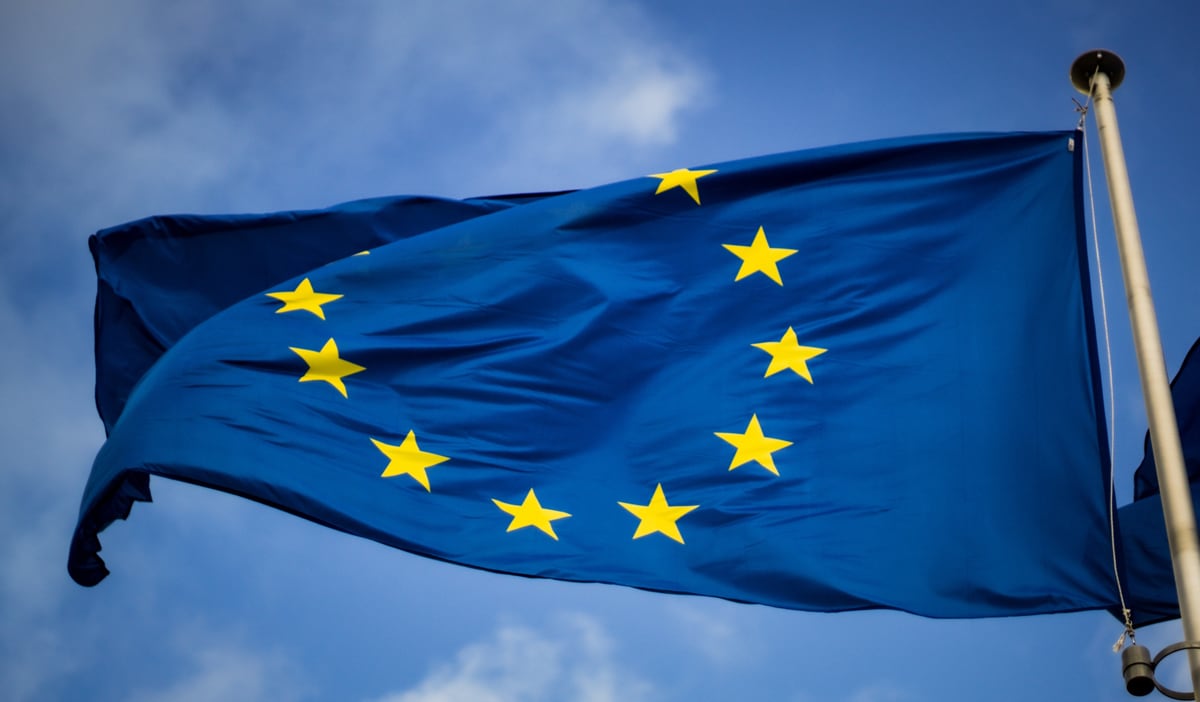
Subject: Urgent need to honour the European Citizens’ Initiative End the Cage Age and safeguard EU democratic credibility
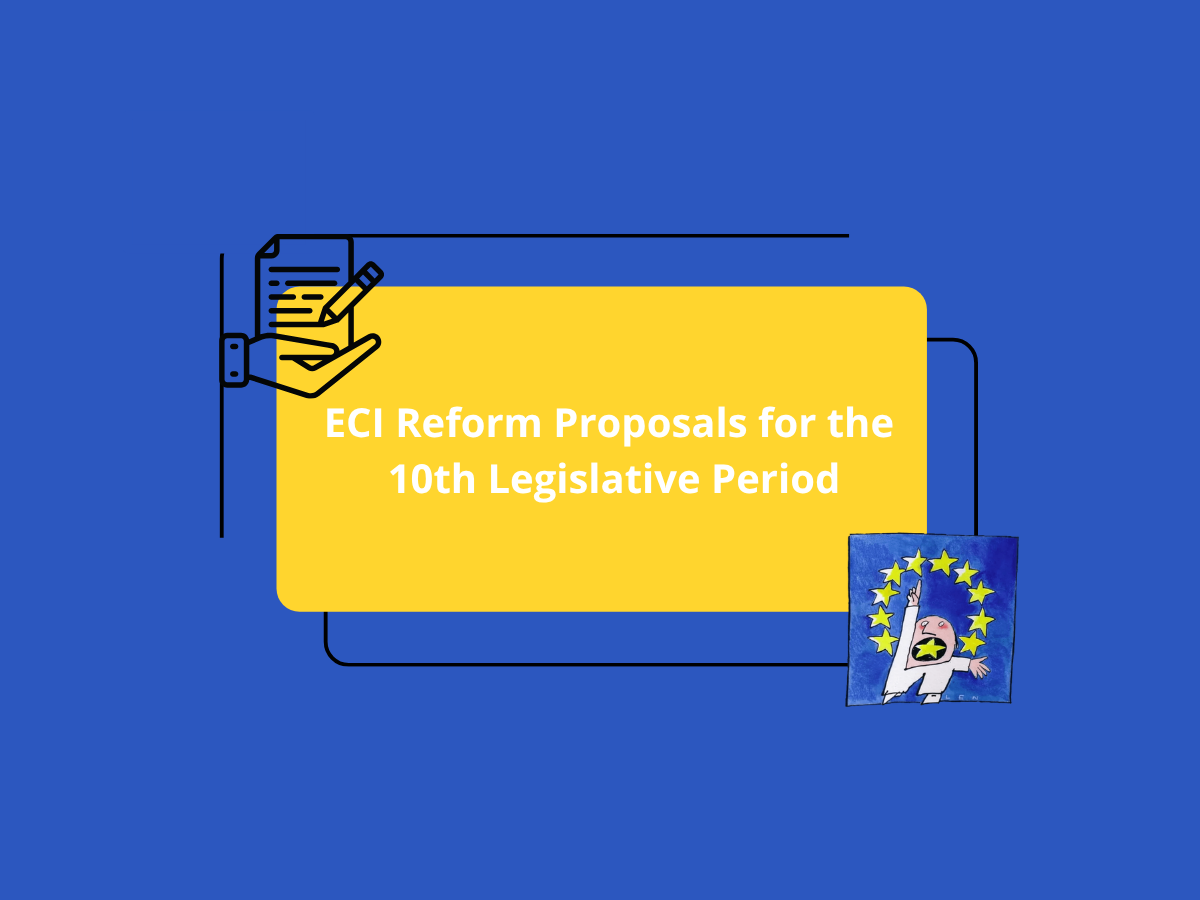

ECI Reform Proposals for the 10th Legislative Period
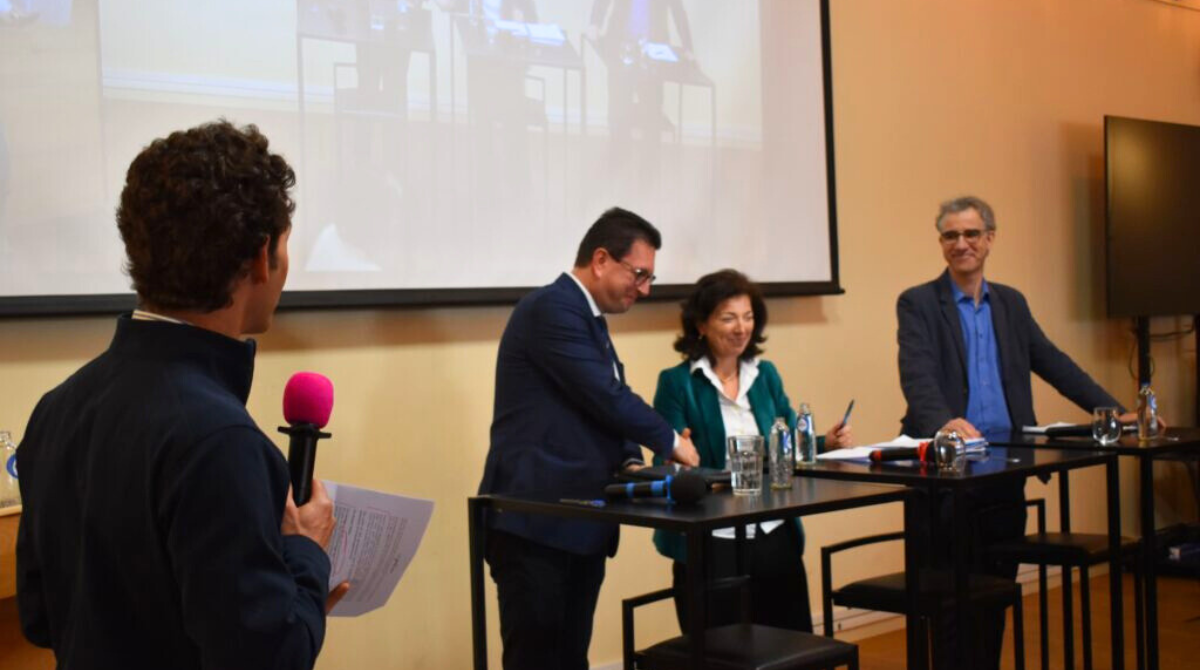

Event Report: How Can European Citizens’ Initiatives Make a Difference for Civil Society?


ECI for the Rights of Nature: A Chance for Democracy and Environmental Protection
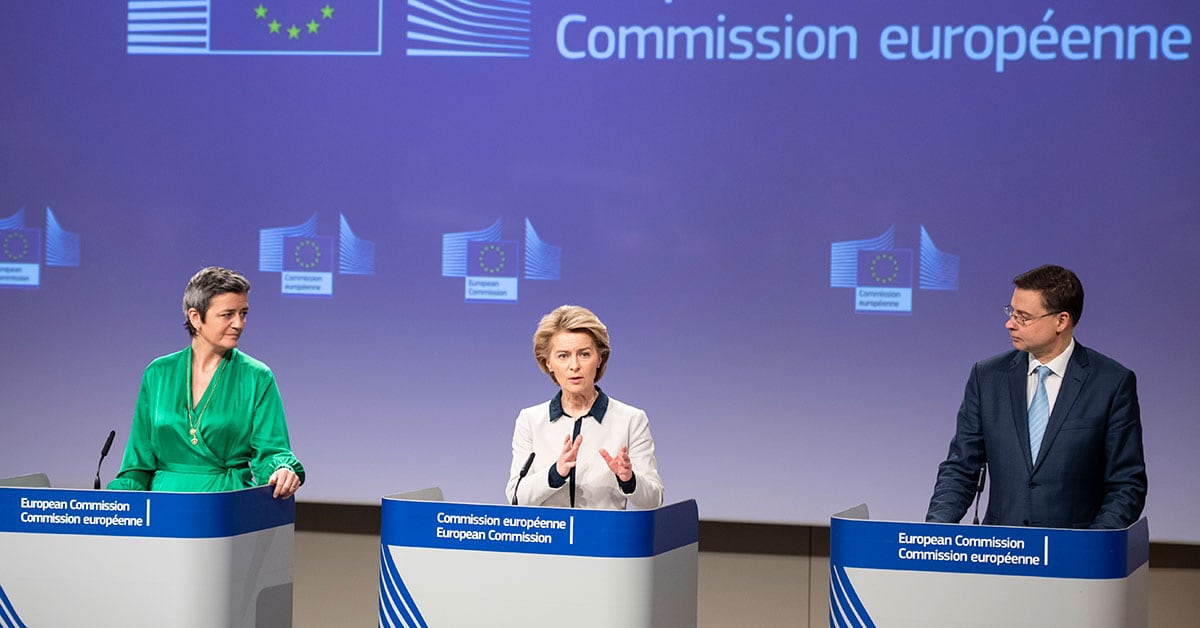

New EU Commission does not bode well for democracy and the ECI


